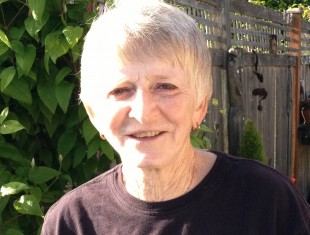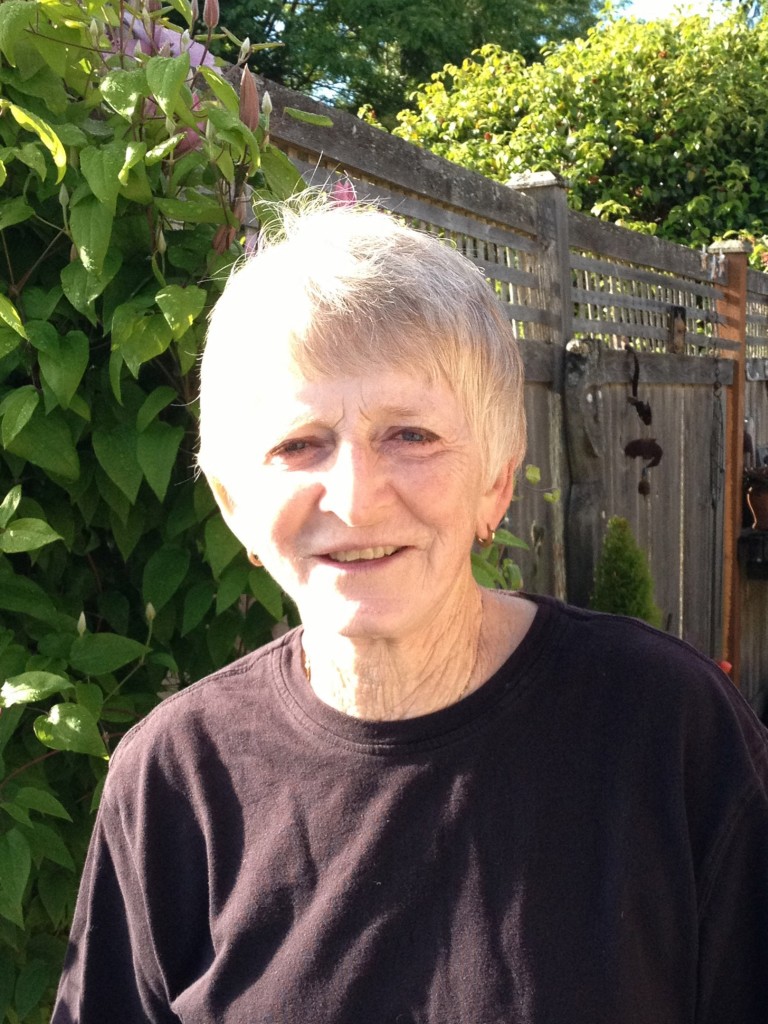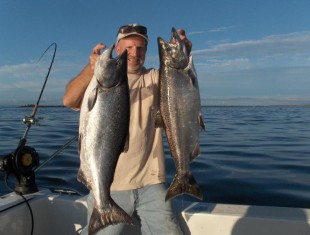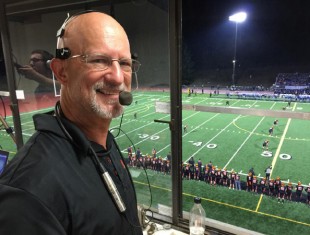By Terry Mosher
Editor, Sports Paper
Part I of II
A couple years ago the University of Washington corrected a fault that was systematic throughout the country and gave all its women athletes a big “W” letter if they had played a sport at the school before the enactment of Title IX in 1973.
So Betty Rankin, a Poulsbo resident who had played field hockey and basketball back in the late 1950s and early 60s at the UW, received hers.
“They were catching up with Title IX,” said Bob Fredericks, who led the recruitment process when Rankin was hired as general manager of the Bremerton Tennis & Athletic Club in 1997. “Women should have been equally to men in sports so at the top level of sports he (Washington athletic director Scott Woodward) thought those women deserved a varsity “W” just like the men got for their sport.”
Rankin was the general manager of BTAC (recently renamed Kitsap Tennis & Athletic Center) for seven years, retiring in 2004, although the term retirement is loosely used in her case because she has not slowed down.
Rankin is an USTA Certified tennis official and umpire and during the tennis season is scurrying around the Northwest to various tournaments. She just spent a week in Sun River, Oregon officiating a large tournament, and that came on the heels of a mother/daughter tournament in Vancouver, WA.
Before leaving for Sun River, Rankin was busy hiking with a local Kitsap County hiking group called The Truckers up Mount Zion in the Olympics. So Rankin keeps very busy, which is not unusual for somebody who has been very active all her life.
Rankin, who graduated from Centralia High School in 1957, grew up on a farm where hard work was the norm. And when she wasn’t working, she was playing sports. Her whole family was very athletic and Rankin played school basketball – this was before Title IX and girls, if they played sports, it was more like a play day – and away from school fastpitch softball on a team that sometimes was coached by her dad.
“My dad was really a baseball nut,” says Rankin. “He coached and played and messed around with it. Everybody in Centralia, I think, played baseball or softball. We had a softball team when I was in junior high. It was an all-star team. We were just kids. We played with pedal pushers and wore tennis shoes.”
“We entered the Washington State Tournament and we go to the park and up comes a station wagon with the other team. They were twice as old as we were and they all had baseball cleats and baseball pants.
“ Our coach says, ‘No way we are going to play with this group.’ “
But Rankin and her teammates insisted, so they did.
The next year Rankin said they had a team – Centralia Debs – that were sponsored by a business and they wore skirts.
“They were like tennis skirts,” says Rankin “We never wore baseball pants. We played in a league – I remember Irvine Florist from Portland ‑ and we were so far out of our league. We thought we were so cool, but we weren’t.”
Once she graduated from Centralia, Rankin went to Centralia Community College where she played field hockey. The coach was also the men’s tennis coach (there was no women’s tennis team) and when there weren’t enough players to field a team, Rankin was given a racquet and told to learn how to use it.
“So I did,” said Rankin, who laughs at the memory. “I was far ahead of my time. Just walking on the court and them (the men) seeing me brought such a shock to their system.”
Even though Rankin was five-foot-five, she was nobody to fool around with. She could play tennis well, even though she had virtually no previous experience. And the major reason for that is because of her background growing up on a farm.
“I was from a really athletic family,” says Rankin. “I was a farm girl. I was strong. My family was all really coordinated and into sports. I lifted a lot of hay bales and drove tractor and stuff like that. I was strong and coordinated. You should see my arms. I’m kind of a small woman, but I have pretty well developed arms. The styles of clothes they make don’t fit me well. They are for women with thin arms and thighs.”
Rankin left Centralia CC after just over a year and finished her studies in biomechanics at the University of Washington. While there she continued to play field hockey and added basketball to her sports resume. It is for her contribution in those club sports that she received the big “W”.
“When I played basketball there were three guards and three forwards,” Rankin says. “You could only play half the court. My last year in college they put in the roving player. One player could run the full length of the court. I played the rover, although I’m not sure I played it all the time.
“Field hockey came out of Canada and it was a pretty big sport in all the colleges, but mostly today it has disappeared. Field hockey is more like soccer and ice hockey. We had a coach from England and in the off-season we played lacrosse for conditioning. “
Once Rankin received her degree from the UW, she got an offer from Springfield College in Massachusetts of a scholarship to go to graduate school. Springfield was well known for producing important sports administrators
Her parents were against the move, but Rankin believes it was the right thing at the right time.
Well, no it wasn’t.
“I traveled to Springfield to go to school and be a teaching assistant,” Rankin said. “They were going to give a scholarship to live on. I get there and they had some sort of financial crisis. And they tell me they are sorry but they can’t honor the scholarship.
“So I’m out of lucky, honey, I’m 3,000 miles from home, I have no money, and so I have to make do. I’m too proud to go home and hear, ‘I told you so’ kind of thing. So I took a job in Springfield in a special high school system. They had the classic high school and a technical high school. I taught PE at the trade school. The students would go half a day in their trade lab and half the day taking their academics.
“I taught PE to a group of girls who had no interest in that whatsoever. They just lived a terrible life. They came from drugs and from immigrant parents. Their people had migrated from New York City to Springfield. There were polish, Italians, and they lived in concaves throughout the city. They weren’t interested in their kids getting a college education.
“There was a lot of first generation born here. Their parents didn’t speak English, there were a lot of white trash kind of kids; really blue collar.
“So I didn’t know what a trade school was. I learned fast. There was a lot of drug use, lot of pregnancies; a lot of you name it. So I was having a bad time. They didn’t want to change their clothes to take PE. They had switchblades and razor blades in their hair. “
Rankin was at a quandary. She needed something to get their attention, and then it came to her. She had a tiny drill team exercise when she did her student teaching, so she said to her self, ‘I’ll start a drill exercise.’
It became a big hit. The kids seemed to like the structure of it and also they thought they looked cute drilling. Then she took it one step further and formed a drill team that could be used in competition.
But there were rules.
“They had to be nice, not just to me, but also to all their teachers,” Rankin said. ‘They didn’t have to change their clothes, but had to have the right shoes. At the end of the year, they entered some competition and won it. That saved my bacon.”
When the school year ended, Rankin’s stay ended.
“Oh yeah, “ she said, “I couldn’t wait to get out of town and back to school at Washington. It was the hardest job I ever had, but it made me a lot better person because of it. I never had seen how people lived and I didn’t understand the different racial concepts. I really thought I knew a lot, but I didn’t know anything. I just had to be really clever and observant and focused. I leaned a lot about myself that year.”
Next – Part II: Rankin goes back to school and marches forward on a remarkable career.





